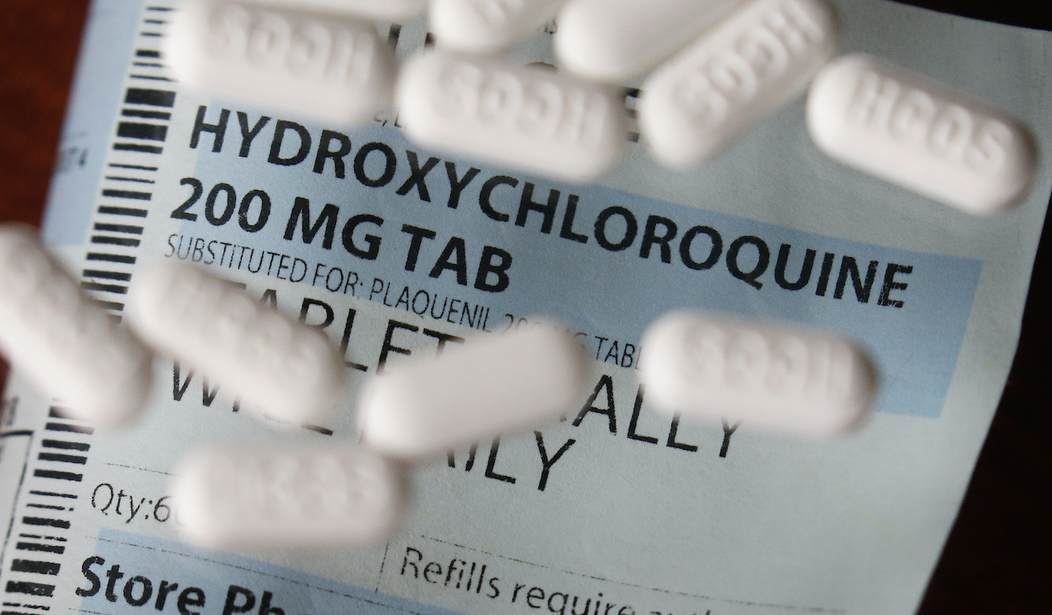As PJM’s Stacey Lennox noted yesterday, Health and Human Services Assistant Secretary for Public Affairs Michael Caputo recently warned on Facebook live that the Centers for Disease Control and Prevention (CDC) “was harboring a ‘resistance unit’ to Trump.”
Caputo alleged that career scientists “haven’t gotten out of their sweatpants except for meetings at coffee shops” to plot “how they’re going to attack Donald Trump.”
“There are scientists who work for this government who do not want America to get well, not until after Joe Biden is president,” Caputo added.
While the media has tried to present Caputo as unhinged, could he actually be right? Is it actually possible that there are experts at the CDC who are more concerned with “resisting” Trump than public health?
I think the answer lies in the CDC’s Morbidity and Mortality Weekly Report (MMWR) from September 4. Titled, “Hydroxychloroquine and Chloroquine Prescribing Patterns by Provider Specialty Following Initial Reports of Potential Benefit for COVID-19 Treatment — United States, January–June 2020” which details the increase in hydroxychloroquine and chloroquine prescriptions this year. The report is largely just a detailed analysis of the number of prescriptions this year but not-so-discreetly included in the report is the following claim in its summary:
“Earlier this year, [hydroxychloroquine and chloroquine] were widely reported to be of potential benefit in the prevention and treatment of COVID-19. However, current data indicate that the potential benefits of these drugs do not outweigh their risks.”
Excuse me?
The most commonly cited claim against hydroxychloroquine (echoed in the CDC’s MMWR) is fatal heart damage, which was reported in two bogus studies, the debunked VA study, and another flawed study in Brazil from April. But as veteran virologist Steven Hatfill explained, the media never mentioned that the Brazilian doctors in that study “were giving their patients lethal cumulative doses of the drug.”
Two other studies followed linking hydroxychloroquine to higher mortality, but those studies were based on faulty data, and two well-respected medical journals had to retract one of them.
Back in April, it was noted that countries with high rates of malaria have significantly lower COVID-19 mortality rates. Hydroxychloroquine is a decades-old anti-malaria drug.
But CDC’s claim that “current data indicate that the potential benefits of [hydroxychloroquine and chloroquine] do not outweigh their risks” contradicts the plethora of data we have to the contrary.
There have been nearly a hundred studies on the efficacy of hydroxychloroquine, most of them peer-reviewed, which indicate that hydroxychloroquine has a positive impact on mortality, particularly when administered early.
A study published last week out of Saudi Arabia found that “Early intervention with HCQ-based therapy in patients with mild to moderate symptoms at presentation is associated with lower adverse clinical outcomes among COVID-19 patients, including hospital admissions, ICU admission, and/or death.”
Another study published earlier this month of nursing home patients found that patients not treated with hydroxychloroquine found that those receiving standard treatment had a mortality rate more than five times higher than those who were treated with hydroxychloroquine and azithromycin.
In July, a large-scale, peer-reviewed study conducted by the Henry Ford Health System concluded that hydroxychloroquine successfully lowered mortality rates for hospitalized coronavirus patients.
There are currently about a hundred studies on the efficacy of hydroxychloroquine in treating COVID-19 (61 of them peer-reviewed) that overwhelmingly show positive results, particularly when administered early.
Yet, according to the CDC, “the potential benefits of [hydroxychloroquine and chloroquine] do not outweigh their risks.”
Yeah, okay.
_____
Matt Margolis is the author of the new book Airborne: How The Liberal Media Weaponized The Coronavirus Against Donald Trump, and the bestselling book The Worst President in History: The Legacy of Barack Obama. You can follow Matt on Twitter @MattMargolis










Join the conversation as a VIP Member